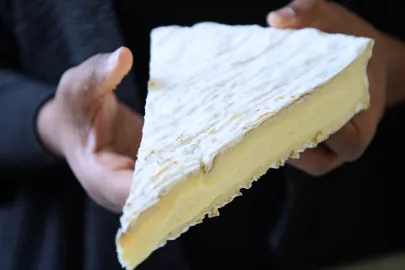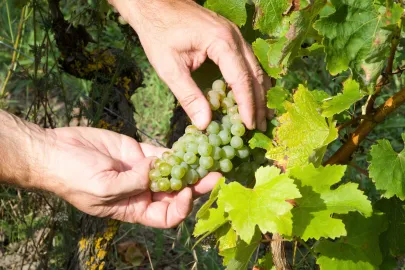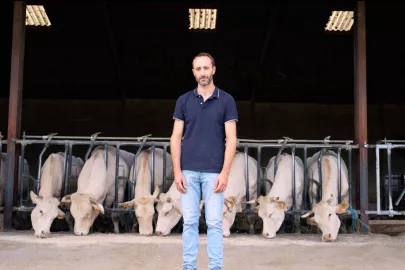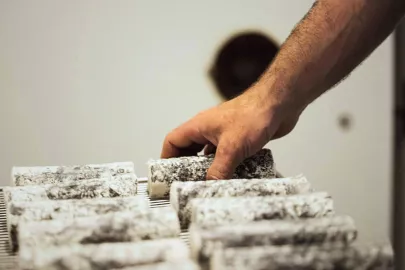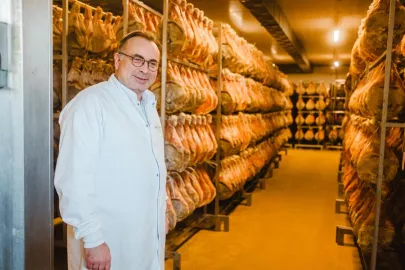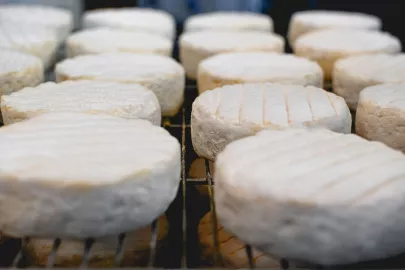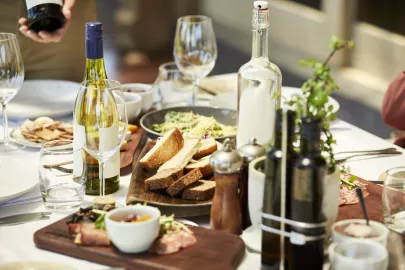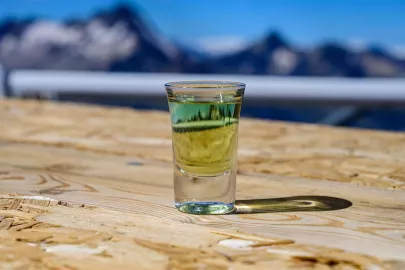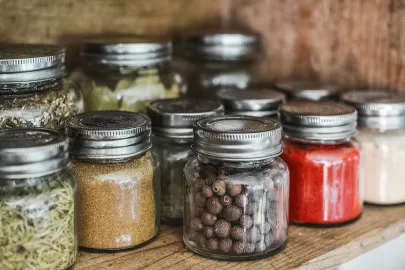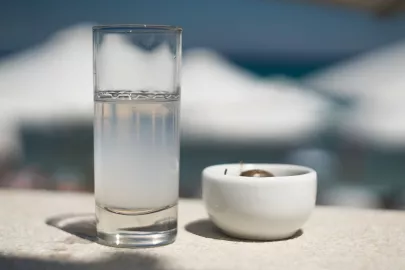We traveled to the South of France to meet with Jean-François Nicq from the Les Foulards Rouges estate in his adopted home of Roussillon. Over the course of two decades in the region, he has forged a natural philosophy of winemaking and become one of its most respected adherents.
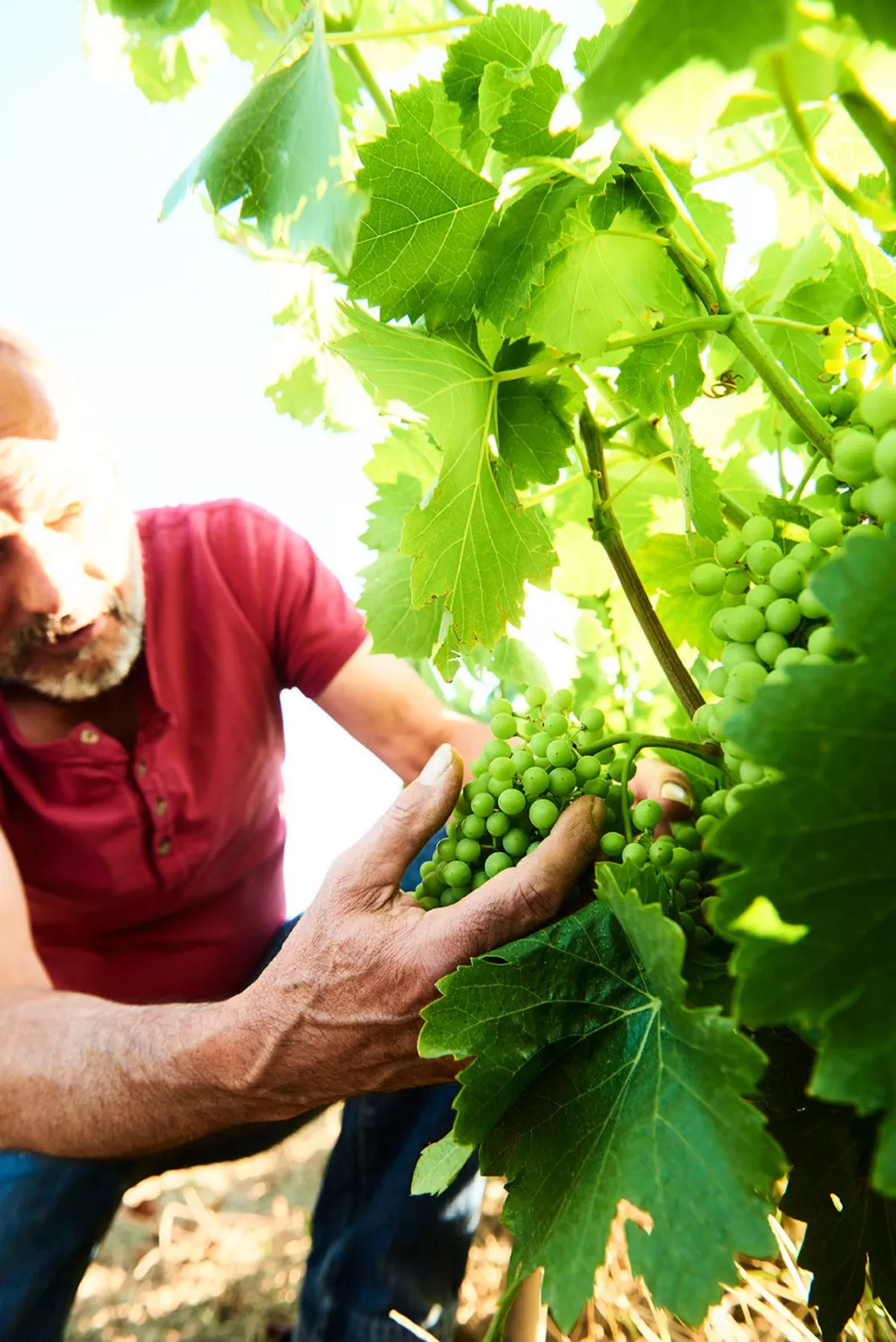
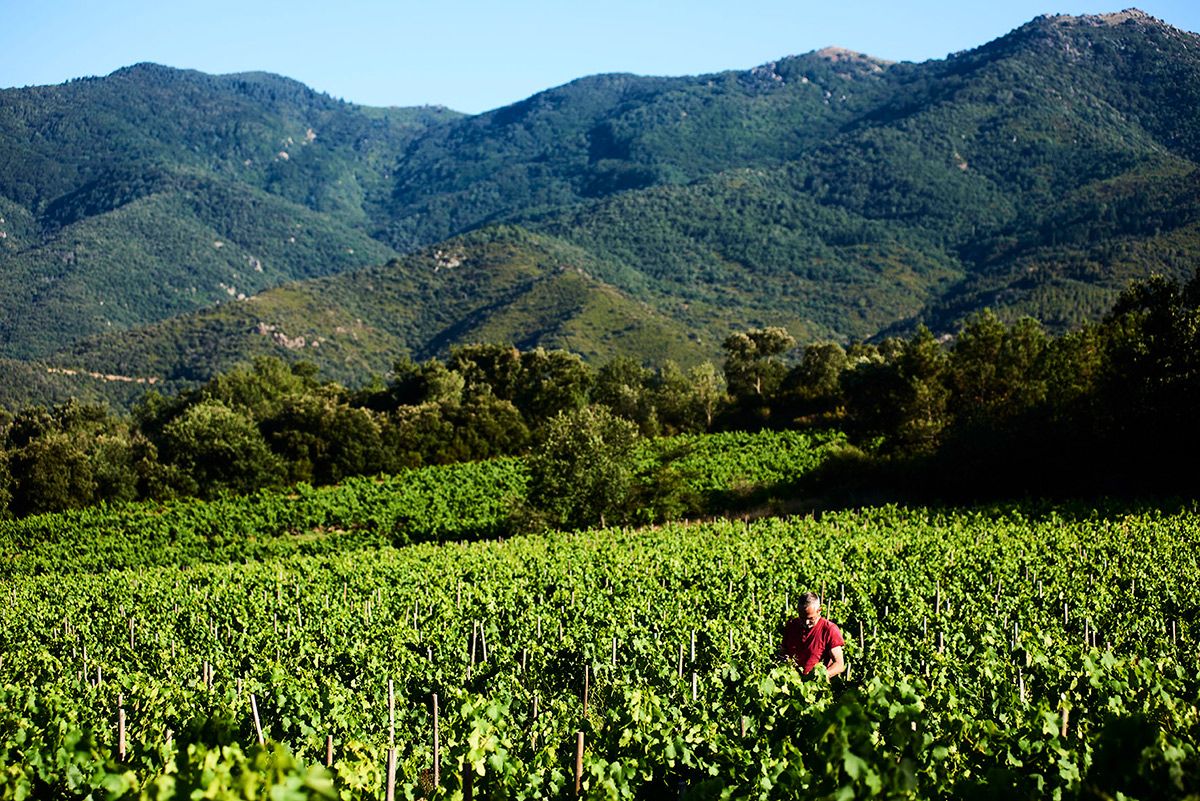
© ©LOUIS-LAURENT GRANDADAM
A region reawakens
There was a time not so long ago when wine guides and press invariably appended Roussillon to their chapter on Languedoc, when wine shops specialized in the Southwest carried about 80% Languedoc wines and 20% from Roussillon. But the scales have since tilted in the other direction, and the proportions have balanced out for this stretch of southern France that extends from Provence to the Pyrenees. Roussillon is starting to feel the glow of the media spotlight. Some have even gone so far as to proclaim the region’s vineyards a new El Dorado. There are certainly appellations like Collioure and Banyuls that appear on the list of AOCs and have long boasted excellent estates. But over the past 20 years, winemakers have been moving into other parts of the region, starting with Agly Valley, in the hinterland, and the piedmont slopes of the Albera Massif, a bit closer to the coast. With affordable land, highly promising terroir and stunning scenery, it’s no wonder why. Many natural winemakers have found their creative outlet here.
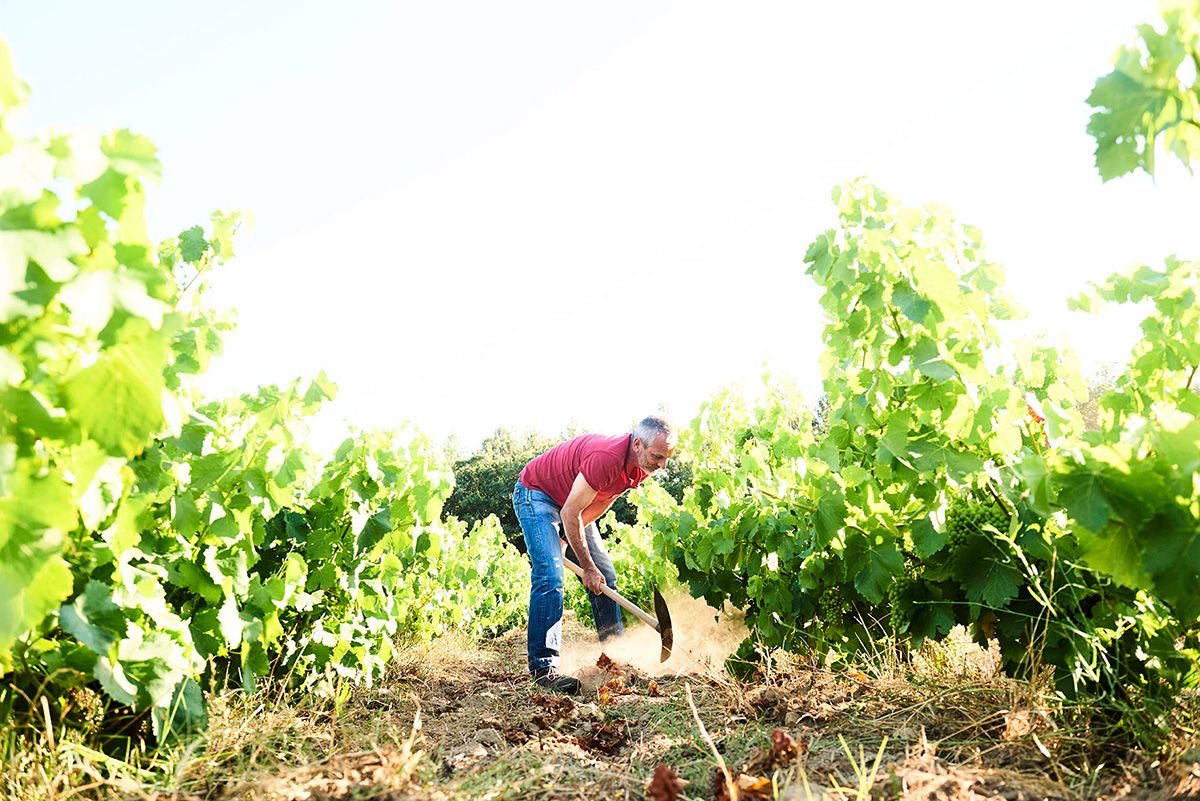
© ©LOUIS-LAURENT GRANDADAM
Carbonic maceration and musical melodies
One of the pioneers was Jean-François Nicq, from the Les Foulards Rouges estate. On paper, it seems like a long shot that this native of Lille, at the northern tip of France, would become a vintner at the other extremity of the country. But he did just that. After studying geology, he signed up for a two-year winemaking degree in Mâcon, Burgundy. There he met Thierry Puzelat – a young man from Touraine and a remarkable winemaker in his own right – who turned him on to natural wine. Jean-François was a believer, and brought his vision to the cellars of Vignerons d’Estézargues, an excellent little cooperative in the Gard region where he plied his trade for a decade. In 2002, he moved a bit farther south to Montesquieu-des-Albères, in Roussillon. Alongside his contemporaries Bruno Duchêne and Jean-Louis Tribouley, he followed in the footsteps of Alain Castex as one of the first adventurers to take the plunge into natural wines. Vinification without additives, of course, and organic winegrowing. He currently cultivates 18 hectares (44 acres) of vines spread across several plots around his village, on acidic gneiss or decomposed granite soil. Some of the land is plowed by horse.
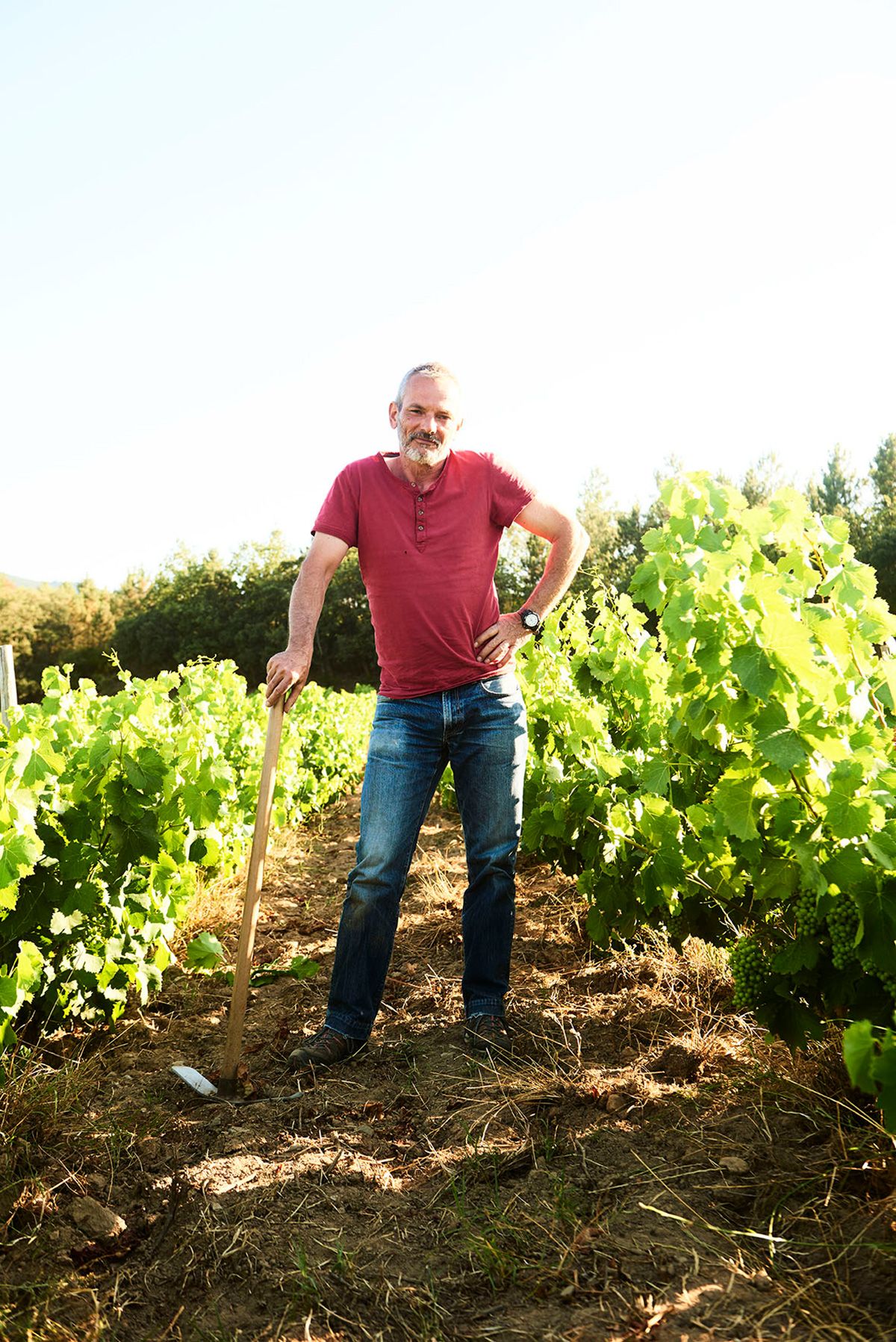
© ©LOUIS-LAURENT GRANDADAM
Inside the winery, there are no additives, as mentioned, and carbonic maceration is used for all the wines aside from Grenache and Frida. The idea behind the maceration process, known as “carbo” for short, is to bring in an unscathed harvest with intact grapes. Before there is time for scrapes or gashes, the grapes are poured directly into a tank filled with carbon dioxide. The fermentation takes place intracellularly, with several phenomena unfolding in each grape: the acidity lowers, the tannic structure is restrained, and rich, intense fresh fruit aromas develop. “Carbo” wines are known for being supple, round and easy on the palate. That’s the general profile, but it obviously varies depending on location, grape varieties and the winemaker’s touch. Some believe that the process wipes out a wine’s distinctive terroir. The jury is still out, but that’s certainly not the case for Les Foulards Rouges. All Jean-François Nicq’s wines – “carbo” and conventional – share some common denominators: precision, elegance, silkiness and purity. The cellar tasting is a real pleasure. We’re lulled by the wines and the sounds of Moriarty and Cesária Évora. The vintner from Les Foulards Rouges takes joy in all aspects of life. The conversation glides effortlessly between music, cinema, literature, philosophy and the legacy of his parents, who were teachers and communist activists.
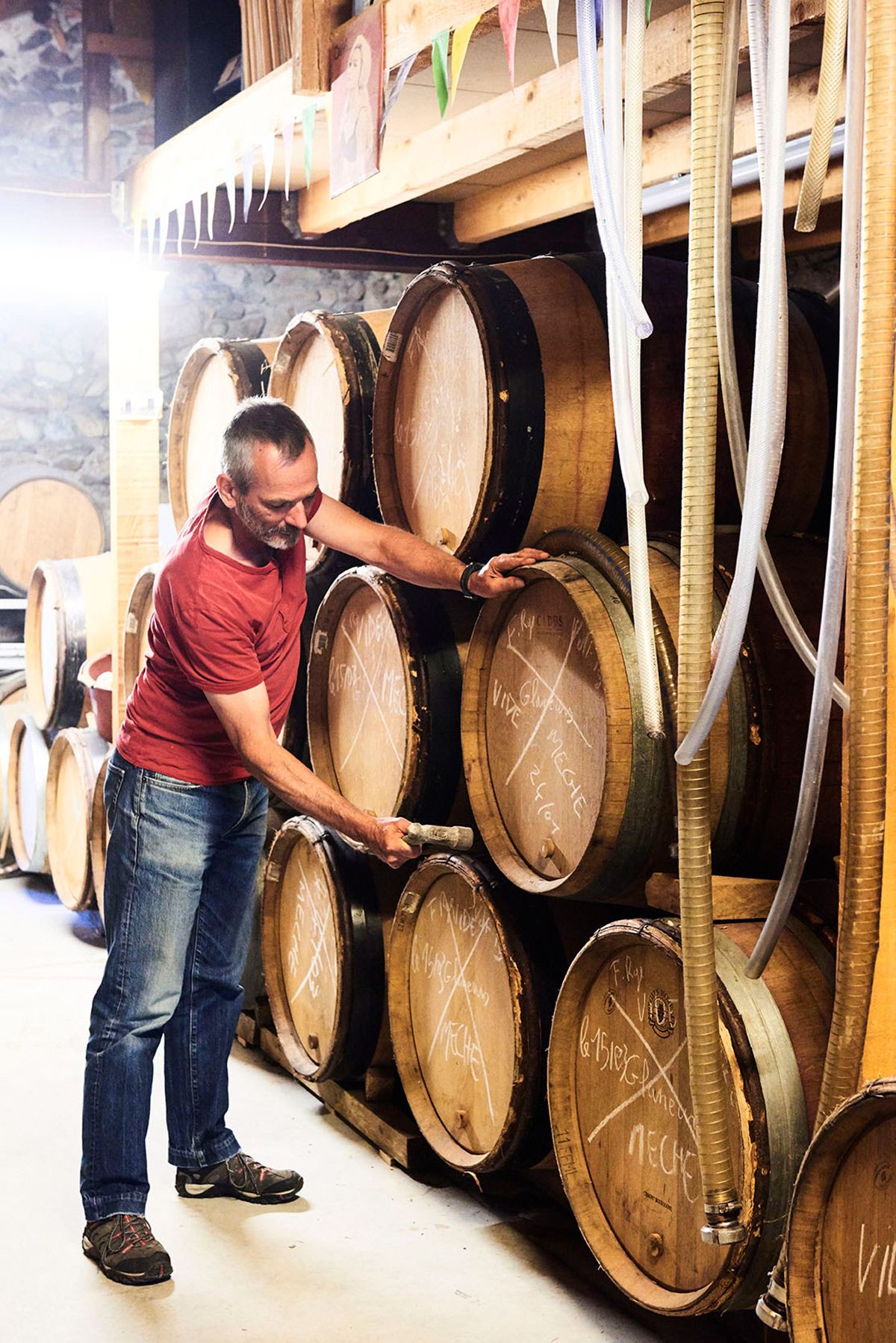
© ©LOUIS-LAURENT GRANDADAM
The Taste France Magazine selection from Les Foulards Rouges
Vin de France - Grenache - 2021
A lovely grenache, generous without being overbearing, wonderfully fleshy and silky, but not velvety.
Vin de France - Les Vilains - 2021
Some Carignan skeptics still think that the variety is too rustic to make great wine. They need to try this fresh, mouthwatering number that will have you putting your glass out for another!
Vin de France - Frida - 2021
A wine made from centenarian vines planted with a selection of varieties. The serenity, finesse and depth of old vines. Delicious!
Contributor

Editor

